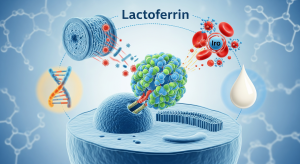Introduction
Arthritis, a chronic condition characterized by joint inflammation, affects millions of individuals globally. While conventional treatments like nonsteroidal anti-inflammatory drugs (NSAIDs) and disease-modifying antirheumatic drugs (DMARDs) are prevalent, some patients are exploring alternative remedies, such as camel milk.
Anti-inflammatory Properties
Camel milk has been studied for its potential anti-inflammatory properties. Research suggests that camel milk can help reduce inflammation and oxidative stress, which are pivotal in the pathophysiology of arthritis. Studies have shown that camel milk can lower levels of pro-inflammatory cytokines such as Tumour Necrosis Factor-alpha (TNF-α) and Interleukin-6 (IL-6) while increasing anti-inflammatory cytokines like Interleukin-10 (IL-10). This cytokine modulation may help mitigate the clinical manifestations of arthritis.
Nutritional Benefits
Camel milk is rich in essential micronutrients, including ascorbic acid (vitamin C), B vitamins, calcium, iron, and potassium. It also contains bioactive compounds like immunoglobulins, lactoferrin, and lysozyme, which confer additional health benefits. The presence of healthy lipids, such as long-chain polyunsaturated fatty acids and mono- and polyunsaturated fatty acids, contributes to its overall nutritional value.
Lactose Intolerance and Allergies
For individuals with lactose intolerance or cow’s milk protein allergy (CMPA), camel milk may be a suitable alternative. It contains lower levels of lactose and has a different casein protein profile, which can make it more digestible for some people.
Caution and Guidance
While camel milk shows promise, it is crucial to note that it may not be suitable for everyone. Unpasteurized camel milk can pose a risk of zoonotic infections such as brucellosis and tuberculosis. Therefore, it is essential to consult with a healthcare provider before incorporating camel milk into one’s diet to ensure it is safe and appropriate for their specific health needs.
Conclusion
In conclusion, camel milk presents a unique and potentially beneficial alternative for managing arthritis symptoms. Nevertheless, further clinical research is necessary to fully elucidate its therapeutic effects and safety profile for broader use.
Would you like any additional information or modifications?
make glossary
Sure! Here is a glossary of terms used in the article:
References
- Al-Hashem, F., Dallak, M., Bashir, N., Abbas, M., Al-Khateeb, M., & Sakr, H. F. (2009). Camel’s milk protects against cadmium chloride-induced toxicity in white albino rats. American Journal of Pharmacology and Toxicology, 4(3), 107-117.
- Agrawal, R. P., Jain, S., Shah, S., Chopra, A., Agarwal, V., & Sawlani, S. (2011). Camel milk as an adjunct to insulin therapy improves long-term glycemic control and reduction in doses of insulin in patients with type-1 diabetes: A 1-year randomized controlled trial. Diabetes Research and Clinical Practice, 88(2), 137-142.
- Yagil, R. (2013). Camel milk and its unique anti-diarrheal properties. Israel Journal of Veterinary Medicine, 68(2), 69-76.
Glossary
Arthritis: A condition characterized by inflammation of the joints, causing pain and stiffness.
Nonsteroidal Anti-inflammatory Drugs (NSAIDs): A class of drugs that reduce inflammation and relieve pain.
Disease-Modifying Antirheumatic Drugs (DMARDs): A category of medications used to slow the progression of rheumatoid arthritis and other autoimmune diseases.
Oxidative Stress: An imbalance between free radicals and antioxidants in the body, leading to cell and tissue damage.
Cytokines: Small proteins released by cells that have a specific effect on the interactions and communications between cells. They play a key role in the immune system.
Tumour Necrosis Factor-alpha (TNF-α): A pro-inflammatory cytokine involved in systemic inflammation, responsible for signalling cells to produce inflammatory responses.
Interleukin-6 (IL-6): A cytokine that acts as both a pro-inflammatory and anti-inflammatory agent, involved in immune responses.
Interleukin-10 (IL-10): An anti-inflammatory cytokine that regulates the immune response to prevent excessive inflammation.
Ascorbic Acid (Vitamin C): An essential nutrient involved in the repair of tissue and enzymatic production of certain neurotransmitters.
Immunoglobulins: Antibodies produced by the immune system to help fight infections.
Lactoferrin: A protein found in milk and other secretions that has antibacterial, antiviral, anti-inflammatory, and antioxidant properties.
Lysozyme: An enzyme that attacks the cell walls of bacteria, playing a role in the body’s immune defence.
Polyunsaturated Fatty Acids: Fatty acids that contain more than one double bond in their chemical structure, known to be beneficial for heart health.
Cow’s Milk Protein Allergy (CMPA): An allergic reaction to the proteins found in cow’s milk, affecting the immune system.
Zoonotic Infections: Diseases that can be transmitted from animals to humans.
Brucellosis: A bacterial infection spread from animals to humans, typically through unpasteurized dairy products.
Tuberculosis: A bacterial infection that mainly affects the lungs, but can spread to other parts of the body.





